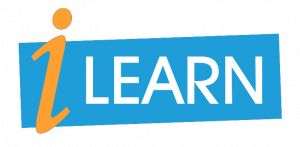This is the course "Advanced Deep Learning for Robotics". The
course will be held in conjunction with my course at the TU Munich in
Garching.
The course is 2V + 2P.
The course is 2V + 2P.
Please be aware
that this lecture demands a strong background in machine learning and esp. deep
learning. In the future we will provide an additional introductory courses as a
prerequisite for this lecture. So, maybe you should think about taking this
advanced course at a later point during your studies.
For the time being, the following material is considered as a prerequisite for
the course and will be assumed to be known:
1. Chapter 1 to 5 of the book C. M. Bishop. Pattern Recognition and Machine
Learning. Springer, 2006.
2. Chapters 1 to 9 of the book Goodfellow, Deep Learning, MIT Press, 2016
(online https://www.deeplearningbook.org )
3. The slides of the TUM course “Introduction to Deep Learning”:
https://dvl.in.tum.de/teaching/i2dl-ws18/
that this lecture demands a strong background in machine learning and esp. deep
learning. In the future we will provide an additional introductory courses as a
prerequisite for this lecture. So, maybe you should think about taking this
advanced course at a later point during your studies.
For the time being, the following material is considered as a prerequisite for
the course and will be assumed to be known:
1. Chapter 1 to 5 of the book C. M. Bishop. Pattern Recognition and Machine
Learning. Springer, 2006.
2. Chapters 1 to 9 of the book Goodfellow, Deep Learning, MIT Press, 2016
(online https://www.deeplearningbook.org )
3. The slides of the TUM course “Introduction to Deep Learning”:
https://dvl.in.tum.de/teaching/i2dl-ws18/
The course website with details about the content and the course materials can be found at https://bbaeuml.github.io/tum-adlr/
The lectures will provide extensive theoretical aspects of advanced deep learning architectures and specifically deep reinforcement learning methods in the field of robotics. The lecture will have reading assignments (e.g., from the DeepLearning book and recent RSS/ICRL/ICRA/IROS papers).
The practical sessions will be key, students shall get familiar with esp. Deep Reinforcement Learning through hours of training and testing. The students will do a semester-long project in teams of 2 with weekly presentations and tutoring of the projects throughout the semester. They will work with TensorFlow and OpenAI Gym and implement advanced deep reinforcement learning methods for state of the art robotic problems. For each student, $1000 credits in the Google Cloud are available via a Google Educational Grant.
There will be an 60min exam at the end of the semester. The final grade will consist of 50% exam and 50% project.
There are only a limited number of spots available
(mainly limited due to the number of tutors and the funding for the cloud
computing resources). The selection of the participants will be based on your
grades in previous deep learning and machine learning related courses.
(mainly limited due to the number of tutors and the funding for the cloud
computing resources). The selection of the participants will be based on your
grades in previous deep learning and machine learning related courses.
- Dozent/in: Bäuml Berthold
Semester: SoSe 2026
